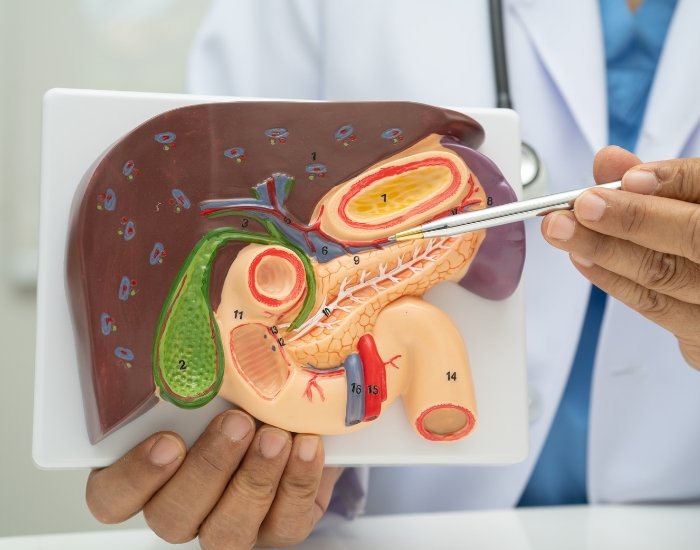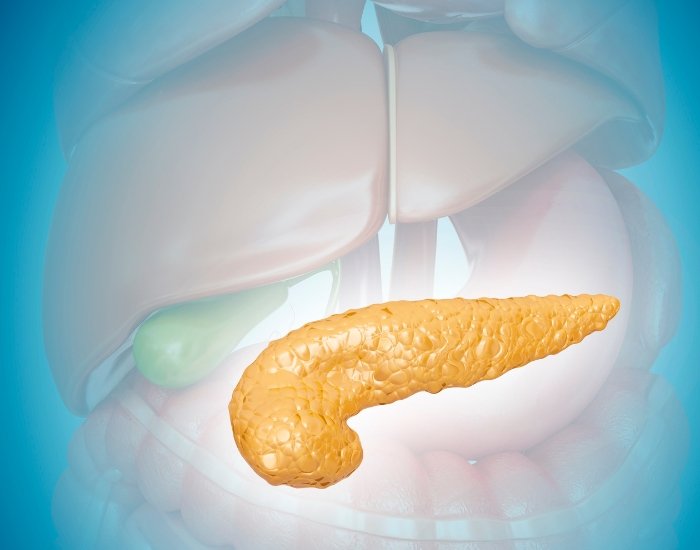Greasy stools, also known as steatorrhea, are an unpleasant and often alarming symptom. While occasional changes in bowel movements can be linked to dietary choices, persistent greasy stool can be indicative of underlying health issues, particularly related to your pancreas. If you’ve noticed that your stools are unusually foul-smelling, difficult to flush, or appear greasy and oily, it may be time to consider the health of your pancreas and seek medical advice.
Understanding the Role of the Pancreas in Digestion
The pancreas is a vital organ that plays a key role in digestion by producing enzymes that help break down fats, proteins, and carbohydrates in the food you eat. When the pancreas is functioning properly, these enzymes are released into the small intestine to aid in nutrient absorption. However, when the pancreas becomes inflamed or its ability to secrete digestive enzymes is compromised, it can lead to malabsorption of fats. The result is greasy, foul-smelling stools that are difficult to flush—often referred to as steatorrhea.
How Pancreatic Insufficiency Affects Stool Quality
When your pancreas is unable to produce or release enough digestive enzymes, the body struggles to digest fats effectively. This malabsorption can cause undigested fat to pass through your gastrointestinal tract, resulting in greasy stools. These stools often appear oily, shiny, or pale in color and may float in the toilet due to the high fat content. Additionally, they may have an unpleasant odor.
Pancreatic insufficiency is commonly linked to conditions like chronic pancreatitis, cystic fibrosis, or pancreatic cancer. If you notice persistent changes in the consistency or appearance of your stool, it could signal a need for further evaluation of your pancreatic function.
Other Symptoms That May Accompany Greasy Stool
In addition to greasy stools, individuals with pancreatic issues may experience a range of other digestive symptoms. These can include:
- Abdominal pain: Often located in the upper abdomen, this pain can be sharp or dull and may radiate to the back.
- Unexplained weight loss: Due to malabsorption, your body may not be absorbing the nutrients it needs, leading to unintentional weight loss.
- Frequent diarrhea: When fat is not properly digested, it can result in watery, loose stools.
- Nausea and vomiting: Digestive disturbances can lead to a feeling of nausea or even vomiting, especially after eating fatty foods.
If you are experiencing a combination of these symptoms, it’s essential to consult with a healthcare provider who can help determine the cause and recommend appropriate treatment.
Why Should You Take Greasy Stool Seriously?
Greasy stools are more than just an inconvenience; they can be a sign of serious underlying conditions, including pancreatic insufficiency, chronic pancreatitis, or even pancreatic cancer. Addressing the issue early can lead to more effective treatment and better management of any pancreatic disorders. If left untreated, malabsorption of fats and other nutrients can lead to deficiencies and other complications that impact your overall health and well-being.
Seeking Professional Help for Diagnosis and Treatment
If you notice persistent greasy stools or any other symptoms associated with pancreatic problems, it’s crucial to consult with a healthcare professional for a proper diagnosis. A gastroenterologist can conduct tests to evaluate your pancreatic function, such as stool tests, blood tests, or imaging studies like CT scans or MRIs. These tests will help pinpoint the root cause of your digestive symptoms and guide the treatment plan.
At United Gastroenterology Assoc. PLLC, our expert physicians specialize in diagnosing and treating pancreatic and digestive disorders. We offer personalized care tailored to your specific health needs and ensure you receive the best treatment options available.
Final Thoughts: Don’t Ignore Your Symptoms
Greasy stool may seem like a minor issue at first, but when combined with other digestive symptoms, it can be a sign of something more serious. Pancreatic health is crucial for digestion and overall well-being, and early intervention can make a significant difference in the management of pancreatic conditions. If you’re experiencing any of the symptoms mentioned in this blog, don’t wait for them to worsen—seek professional care today.
For personalized treatment and expert advice, contact United Gastroenterology Assoc. PLLC. Our team is here to provide you with the highest quality care to help you maintain optimal digestive health.
Disclaimer:
The information provided in this blog is for educational purposes only and is not intended as medical advice. It should not be used to diagnose or treat any health condition. Always consult with a qualified healthcare professional for accurate diagnosis and treatment of any symptoms or medical concerns.


